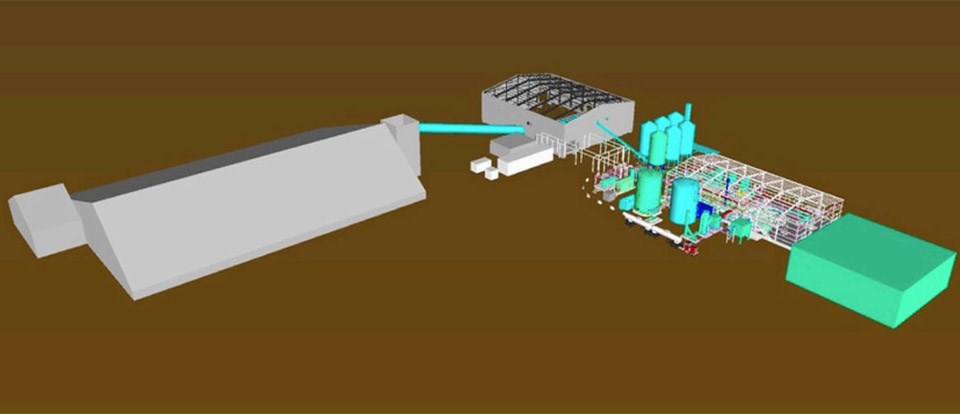SASKATOON — Northern Nutrients, a Saskatchewan manufacturer of nitrogen sulphur fertilizers, is expanding its facilities near Saskatoon to triple its manufacturing capacity from 50,000 tonnes to 150,000 tonnes following an investment by Shell Trading Canada and a new ownership structure.
With engineering already underway and dirt to start moving in the next few weeks, the expansion is expected to be complete by October 2026 with product rolling off the line soon after.
The expansion will create nearly 60 full-time construction jobs, and create new full-time positions at the facility as well as more transport jobs to move the product.
“We’ve got a small team. We can make decisions quickly when it comes to engineering and equipment and stuff like that,” said Ross Guenther, owner and chief executive officer of Northern Nutrients.
“And we just built one three years ago. So we’ve got that expertise of what to do, and unfortunately from the first build, what not to do.”
The lessons from building the first plant in 2022 are fresh in Guenther and his team’s mind, which is helping ensure a short timeline for the project.
Northern Nutrients produces two sulphur fertilizer products: Arctic S, with a composition of 11 per cent nitrogen and 75 per cent sulphur, and Triple Kick, with 38 per cent nitrogen, 17 per cent sulphur and nitrogen stabilizers.
Arctic S is the company’s most popular product, which can be used as a complement or replacement for ammonium sulfate.
Triple Kick has been used by producers as a urea or anhydrous ammonia replacement.
Both are considered “controlled release” products.
The company said what makes its products unique is it uses micronized elemental sulphur.
“Shell has a patent on this type of micronized elemental sulphur,” said Guenther.
“And what that means is the particle sizes of the sulphur are significantly smaller than normal elemental sulphur, and the smaller the particle size, the quicker it converts to plant available sulfate form.”
The company said it is the only location in North America, and one of only a few globally, to use micronization technology, also known as Shell Thiogro Technology.
Northern Nutrients being a licensed provider of the technology is one of the reasons for Shell’s investment; the other is its goal to become more involved with its own technology.
Local impact
The expansion investment comes at the perfect time, Guenther said.
The company has been maxing out the facility to meet the demand for Arctic S, and says the product’s popularity comes from its efficiency and locality. More than two-thirds of Northern Nutrients’ sales occur in Canada, with easy access to the product through the majority of Canadian agriculture retailers.
“The reason our product’s been successful is the product ticks a lot of boxes for farmers,” he said.
“The product is less product to handle, so as the farms get bigger and labour becomes more challenging (to get) on farms, it’s just nicer to have to use less fertilizer.”
Additionally, the tripled capacity will allow the company to meet demand and increase Canada’s fertilizer security.
“So much of the fertilizer that’s used in Western Canada now is imported,” Guenther said.
“So this really takes away that risk of whether something happens further on tariffs with the U.S. or whatever that may be. It really gives security of supply so that farmers know there’s a local manufacturer of sulphur right at their back door.”
About the author
Related Coverage
Middle Eastern turmoil upends markets
Tight nitrogen supply boosts prices
Nitrogen demand soars while supply shrinks
Hand-held device detects nutrient deficiencies in leaf tissue
Saskatchewan farm making compost pellets for added fertilizer
Fertilizer needs fair trade balance: Canadian Association of Agri-Retailers on tariffs




